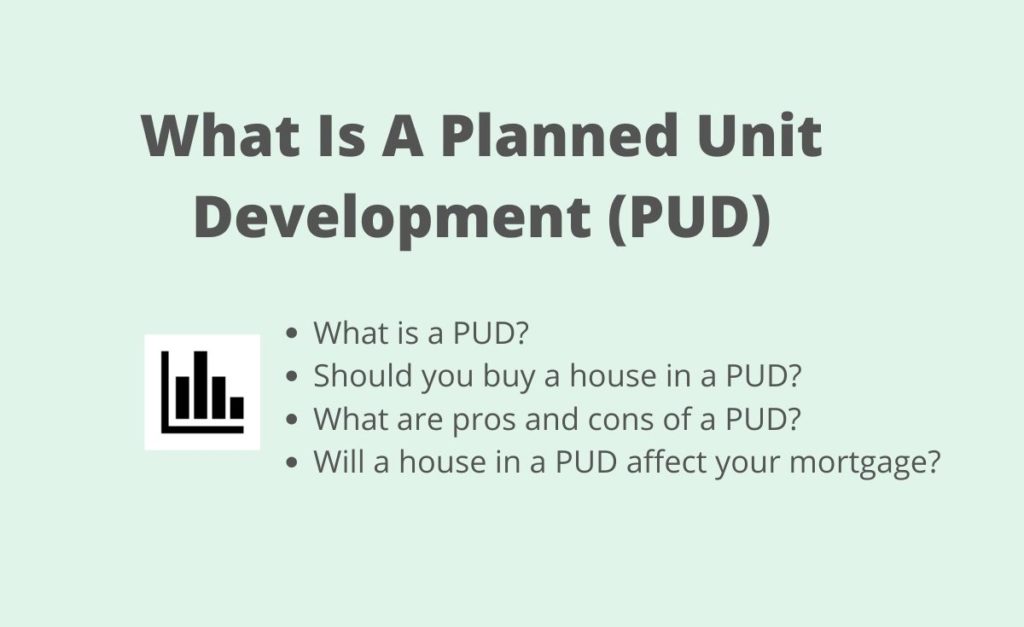What is a PUD?
A planned unit development or PUD for short is a community of buildings such as single-family homes, condos, multi-family homes, etc. that are not governed by local zoning requirements, according to Inman. These homes are developed and governed by a homeowner association(HOA). The association will put in place a set of rules and terms that will govern the community. Each homeowner in a PUD must follow all terms set by the association.
Planned unit developments do not have similar rules. That is one community can have different rules than the other depending on the location, amenities, building types, etc. Each homeowner will contribute a monthly fee known as the HOA fee. This fee will be used to maintain all amenities in the community.
>>MORE: 74 Things To Look For When Buying A House
What are the amenities included in a planned unit development?
Planned unit developments are designed to fit a particular role. For example, the association can decide to develop only single-family homes, condos, or duplexes. It is also possible to have communities made of a wide range of building types and sizes. The one thing all homes in the community will share is a set of rules that govern each homeowner in the PUD.
These rules are designed for safety, organization, uniformity, etc.
In addition, these communities will have shared amenities and each homeowner in the PUD will contribute a fee that will be used to maintain them. The following is a list of some of the amenities in planned unit developments.
- Swimming pools
- Indoor gym
- Outdoor recreation services such as a tennis court, running track, parks, golf courts, etc.
- Village center
All these amenities require regular maintenance and updates. This is why the HOA fee is enforced. The HOA fee can also be used to fix shared areas in the building. For example, if a condo complex needs a new roof, the HOA fee will be used to replace it.
>>MORE: How Much Does It Cost To Buy A House?
Is it a good idea to buy a house in a planned unit development?

Houses in PUD come with their own challenges and benefits. Depending on your lifestyle, you may find these houses worth your buck. On the other hand, it could be a nightmare to live in these kinds of settlements.
The benefit of these houses is that they usually have their own amenities which are taken care of by the association. At the same time, there is little to no work needed besides taking care of your own unit. The snow removal and yard work are usually done by the association. Thus, saving you a ton of time and money to focus on other things.
The bad news is that the community will have rules and terms that each homeowner in the association must follow. Without following them, the owner will face penalties set by the association. Some of the terms prohibit owners to add fences, external garages, or changing the design of the house during the renovation.
Furthermore, you will most likely need approval from both the association and the local government before you renovate the property. The restrictions will vary from one community to another. However, expect limited flexibility on what you can do.
On top of these regulations, you will pay an HOA fee that could somehow stretch your budget; and the fee is not negotiable.
Before you buy a house in a planned unit development, make sure that you answer the following questions.
MORE: 18 Mistakes To Avoid When Buying A House
Questions you should answer before buying a house in PUD
- Do I have enough money to cover my expenses, mortgage payment, and HOA fee?
- How will PUD terms and regulations affect me and my family?
- Will I be able to do everything I want with the house?
- Is my lifestyle going to fit with the amenities provided here?
- Do I need to pay for all these amenities? It would not make sense to pay hundreds of dollars on things you don’t need or use.
>>MORE: How To Buy A House Step By Step?
How will my mortgage be affected when I buy a house in a PUD?
Before you buy a house in a PUD, make sure that your mortgage lender is aware of the situation. Like any other house, your lender will need to know the exact location of the house, terms that come with it, conditions, and more importantly how much it would sell for if the lender has to sell it. Keep in mind that your lender must sell the house when you default on your mortgage.
This means that the lender will do a little bit of homework on the property and community. Your lender will treat the property like any other shared community properties such as condos.
Also, your mortgage payments will increase by the amount equal to your FOA fee. In other words, a house in a planned unit development will cost you more money because of the HOA fee. The other thing is that the HOA fee can increase over time which will end up affecting your mortgage payments.









